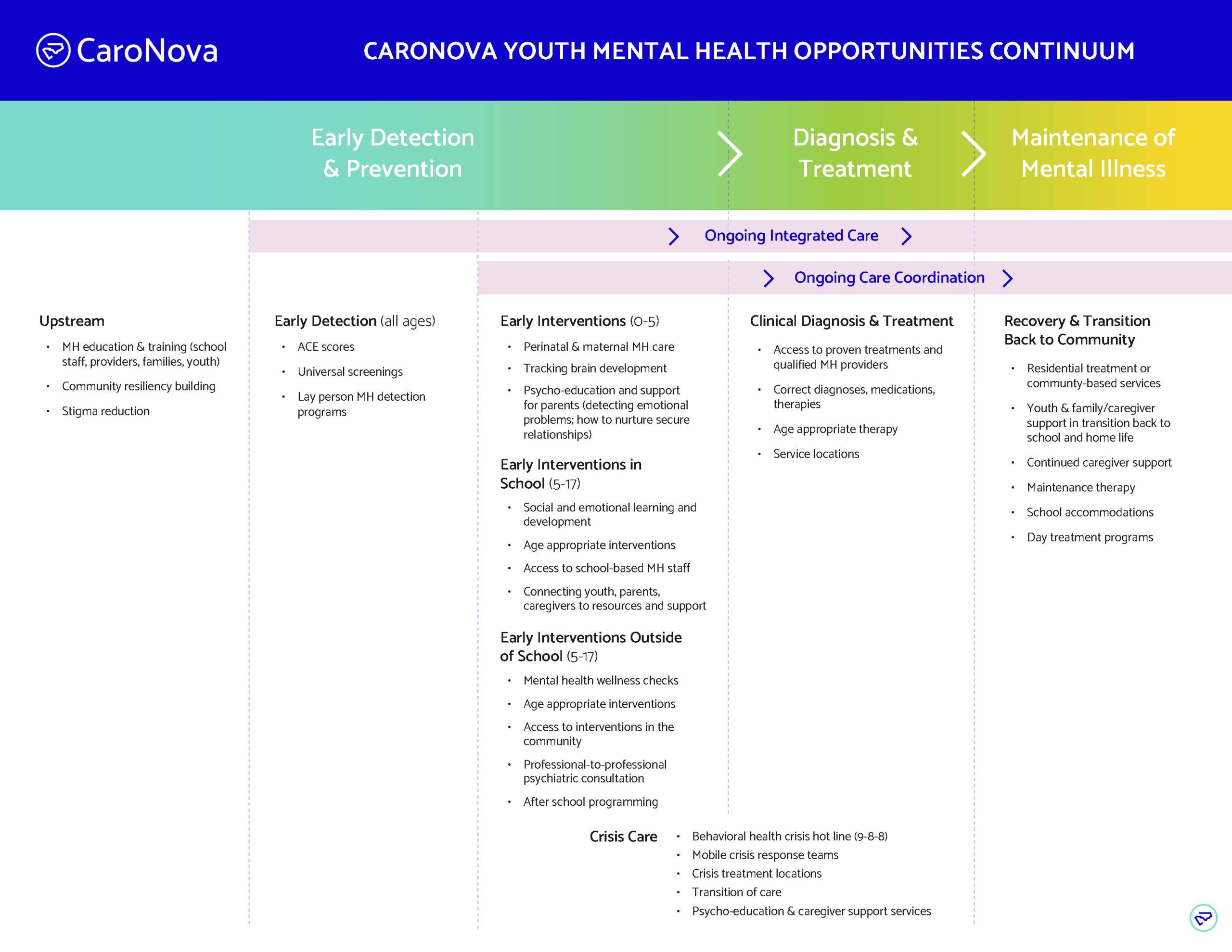There is a youth mental health (YMH) crisis across the country. According to the U.S. Department of Health and Human Services, nearly half of adolescents have had a mental health disorder at some point in their lives. And often these young people have a difficult time getting timely and accessible treatment when they need it most, adding to their problem.
It’s troublesome at home, too. Nearly one in five North Carolinians ages three to 17 are unable to access needed MH care. In South Carolina, the figure is closer to one in three not obtaining care. This failure during the critical developmental phases of childhood, adolescence, and young adulthood can have lifelong adverse ramifications if problems are not properly addressed and resolved. MH issues such as anxiety disorders, depression, eating disorders, and attention-deficit/hyperactivity disorder, or ADHD, often have cascading effects, leading to behavioral issues, school attendance problems, and physical ailments. These, in turn, could further alienate and frustrate youth and keep them from the support they need.
We at CaroNova have been working to stem the tide of the devastating YMH crisis and help create healthier communities. We know it’s a tall order. But we are leveraging our ability to bring together critical stakeholders who can identify and create the necessary change to ease the problem in the Carolinas. We and our partners will identify and evaluate innovative, multi-sector solutions that meet youth where they are, whether in a community-based healthcare provider’s office or in school. We will use evidence-based interventions that can have life-altering impacts on youth and families who are the most vulnerable.
CaroNova Documents State of Youth Mental Health in the Carolinas and Maps Possible Ways to Improve It
The CaroNova Youth Integrated Care Model
Based on stakeholder discussions, CaroNova has started designing a care model as the basis for a system that better serves youth in the Carolinas. The CaroNova Integrated, Collaborative Youth Mental Health Care Model uses coordination and data sharing to maintain YMH as they move across school, community, and health care settings. This model, which adapts the standard, widely studied Collaborative Care Model by adding schools and youth-serving, community-based staff to the care team, serves youth where they already spend most of their time.
Next Steps: Continued Exploration of Upstream Determinants
CaroNova is continuing to explore upstream determinates that impact the mental well-being of all youth. Our long-term goal is to help design and implement scalable and sustainable prevention practices at the population level. This means we are looking at how social, economic, structural policies and practices affect risk factors that can impact one’s well-being.









